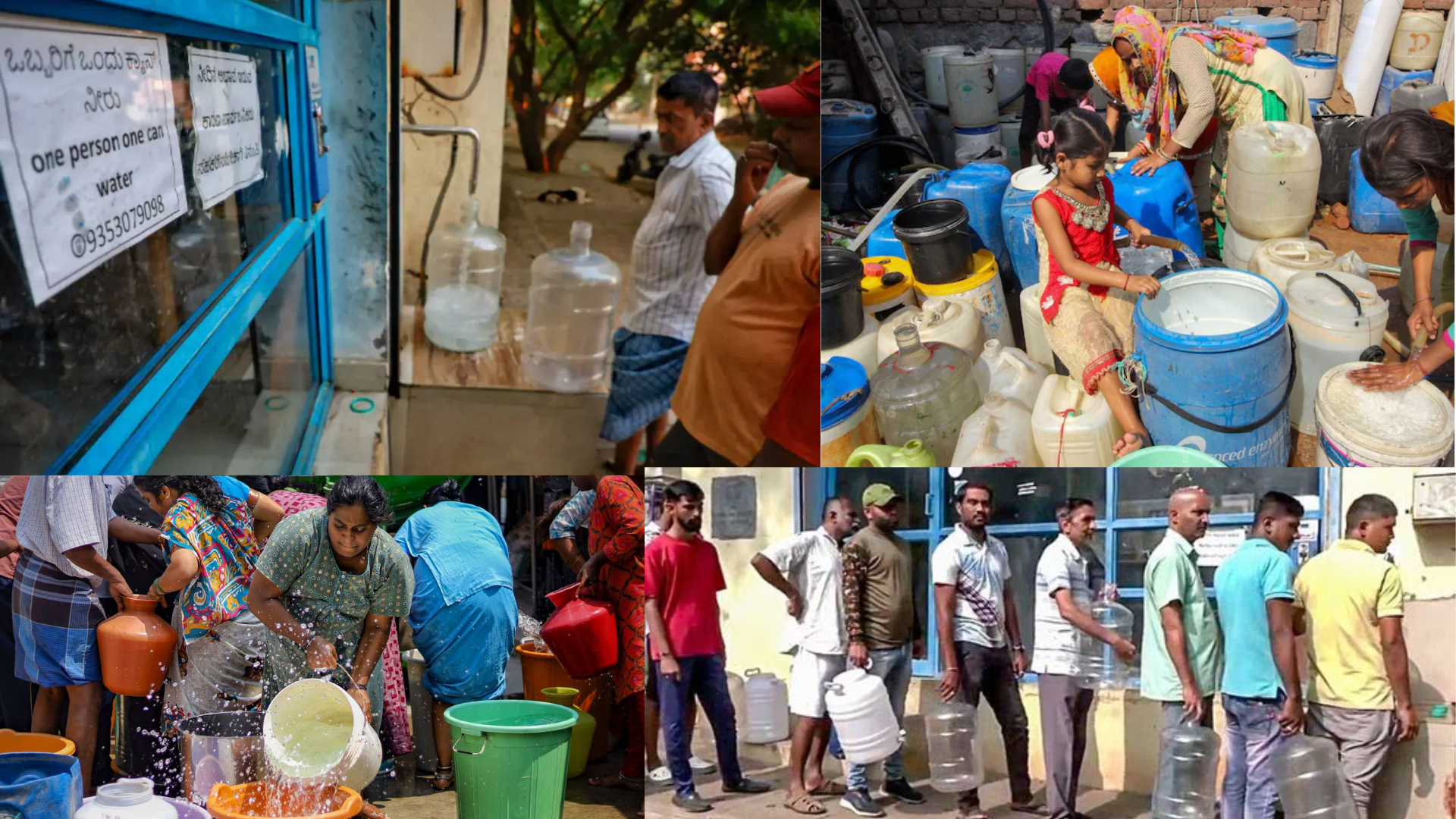

Bengaluru, often hailed as the ‘Silicon Valley’ of India, is grappling with a severe water shortage, with a deficit of about 500 million litres of water per day (MLD) against its requirement of 2,600 MLDs. Chief Minister Siddaramaiah recently highlighted this pressing issue, emphasizing that of the total water requirement, only 1,470 MLD is sourced from the Cauvery River, while 650 MLD comes from borewells.
In response to this crisis, theand Sewerage Board (BWSSB) has taken proactive measures to conserve drinking water. Earlier this month, BWSSB recommended residents to use drinking water economically and urged them to refrain from non-essential activities like washing vehicles and gardening with drinking water. However, despite these advisories, 22 families were found violating the board’s orders and were subsequently fined ₹5,000 each for misusing drinking water for car-washing and gardening purposes. The fines collected amounted to ₹1.1 lakh, with the highest fine of Rs 80,000 coming from the southern region of the city.
The BWSSB has been vigilant in enforcing water conservation measures, especially in the south division, which has been particularly strict in monitoring complaints related to water wastage. Recently, the board prohibited the use of Cauvery and borewell water for activities such as pool parties and rain dances during Holi celebrations, after receiving complaints about planned events despite the water scarcity. This directive led many establishments to swiftly remove ‘rain dance’ from their promotional materials.
Furthermore, the BWSSB has mandated the installation of aerators in commercial establishments, apartments, restaurants, luxury hotels, industries, and other public areas to regulate water flow from taps and reduce consumption.
To address the long-term water shortage, the government is exploring alternative solutions such as utilizing treated wastewater for non-essential purposes. Plans are underway to fill the dried lakes of the city with treated wastewater, which would help recharge borewells ahead of the peak summer season.
In conclusion, Bengaluru’s water crisis demands immediate action and collective efforts from residents, businesses, and authorities to conserve water resources and explore sustainable solutions to mitigate the impact of the shortage.
Gaza’s Health Ministry reported at least 97 Palestinian casualties from Israeli strikes over the past…
The Nithari killings came to light on December 29, 2006, when skeletal remains of eight…
As a gesture to further deepen the close civilizational ties between India and Thailand, Prime…
Among the most striking visuals came from Les Escoumins, Québec, where photographer Kevin Wood managed…
Mollywood stands out for its realistic portrayal of actors who defy conventional beauty standards.
Companies reliant on global supply chains bore the brunt of the market rout. Apple Inc.,…